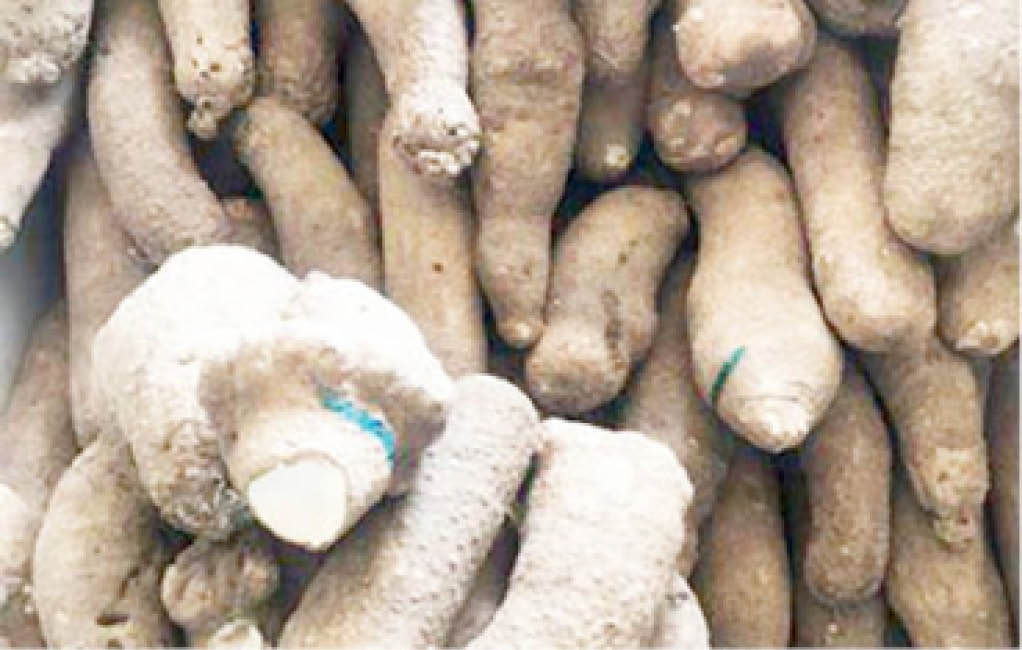Customers groan over high cost of yam in Niger
Customers are groaning over the high cost of yam in Niger State markets. Daily Trust on Sunday gathered that five tubers of yam cost between N3,000 and N5,000 depending on the size. A customer, Sadiq Mohammed, told our correspondent that he has been buying potatoes for over a month due to the high cost of […]

Yam tubers
Customers are groaning over the high cost of yam in Niger State markets.
Daily Trust on Sunday gathered that five tubers of yam cost between N3,000 and N5,000 depending on the size.
A customer, Sadiq Mohammed, told our correspondent that he has been buying potatoes for over a month due to the high cost of yam.
Traders at the Maitumbi Market told our correspondent that the price was fair when compared to two months ago when farmers in the state had not started harvesting.
- FG urged to adopt Uwais electoral reform report to save democracy
- Tinubu: Where did he obtain his certificate?
Hajiya Halima Isah, a trader, said “the price has even come down because Gbagyi farmers have started harvesting. Before now, when we were supplying from Bendel, five tubers normally sold for N2,500 was N5,000 without bargaining.”
Daily Trust on Sunday gathered that most of the yams currently in Niger State markets were supplied from Ekiti and Edo despite the fact that the state was one of the major yam producers in Nigeria.
A yam seller at the Paiko International Yam Market, Yahaya Salihu, attributed the high cost of yam to high cost of transportation.
“Personally, I supply yam to Niger State from Ekiti but there are other traders who buy from Bendel. We also supply to the neighbouring countries of Republic of Niger and Benin Republic. We pay N18,000 per hundred tubers known as ‘kwariya’ from Ekiti State. A J-5 bus carries 24 ‘kwariya’. So, it costs us N432,000 to fully load a J-5 bus from Ekiti to Niger State. So, how do you expect the price to fall,” he asked.
He said late harvesting of yam in Niger State was caused by late rainfall on one hand and banditry on the other hand, especially in major yam producing LGAs.
Daily Trust on Sudnay recalls that major yam producing LGAs of Shiroro, Munya, Paikoro and Rafi have been battling banditry and insurgency for the past eight years, with over 29,000 farmers forced out of their communities.
